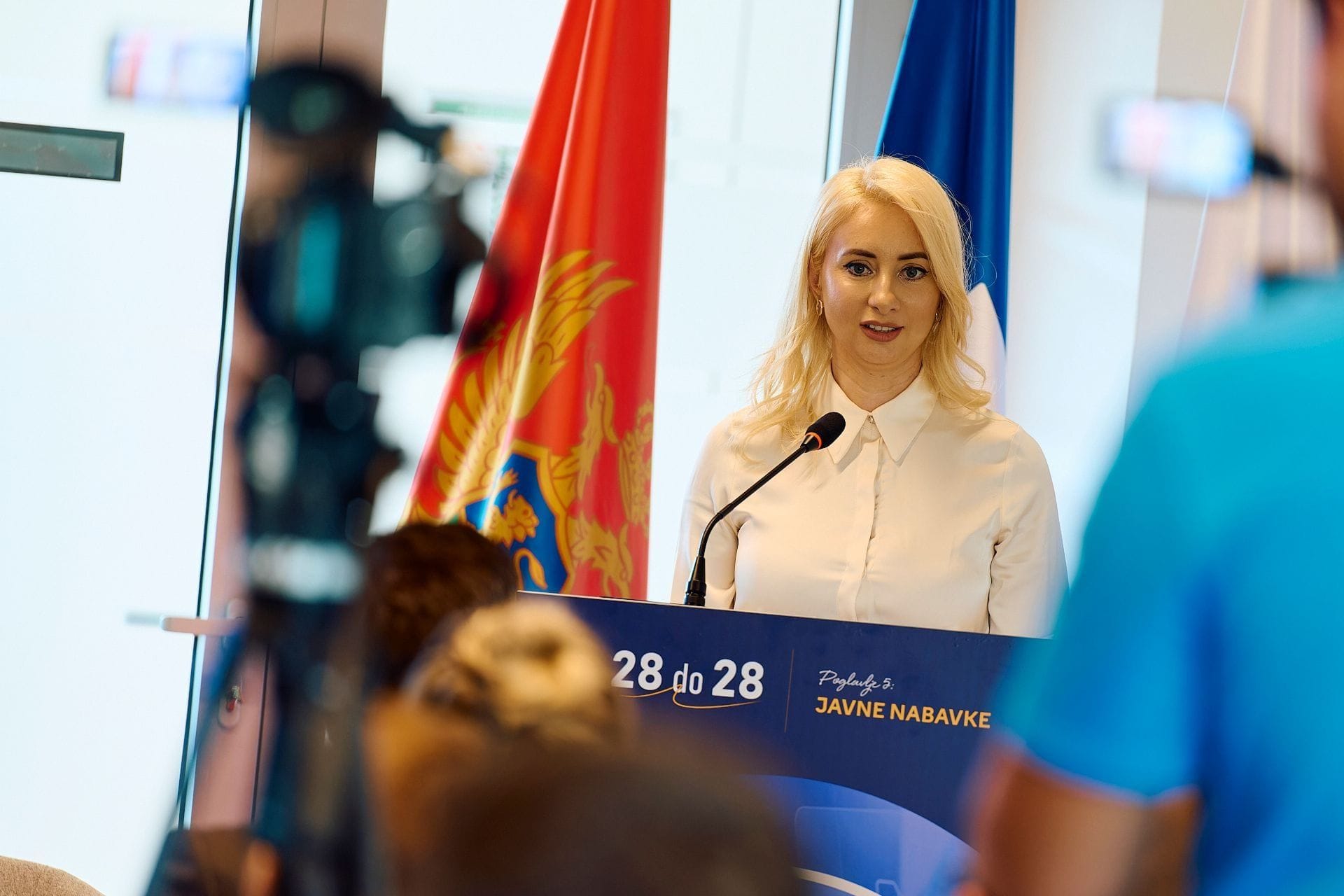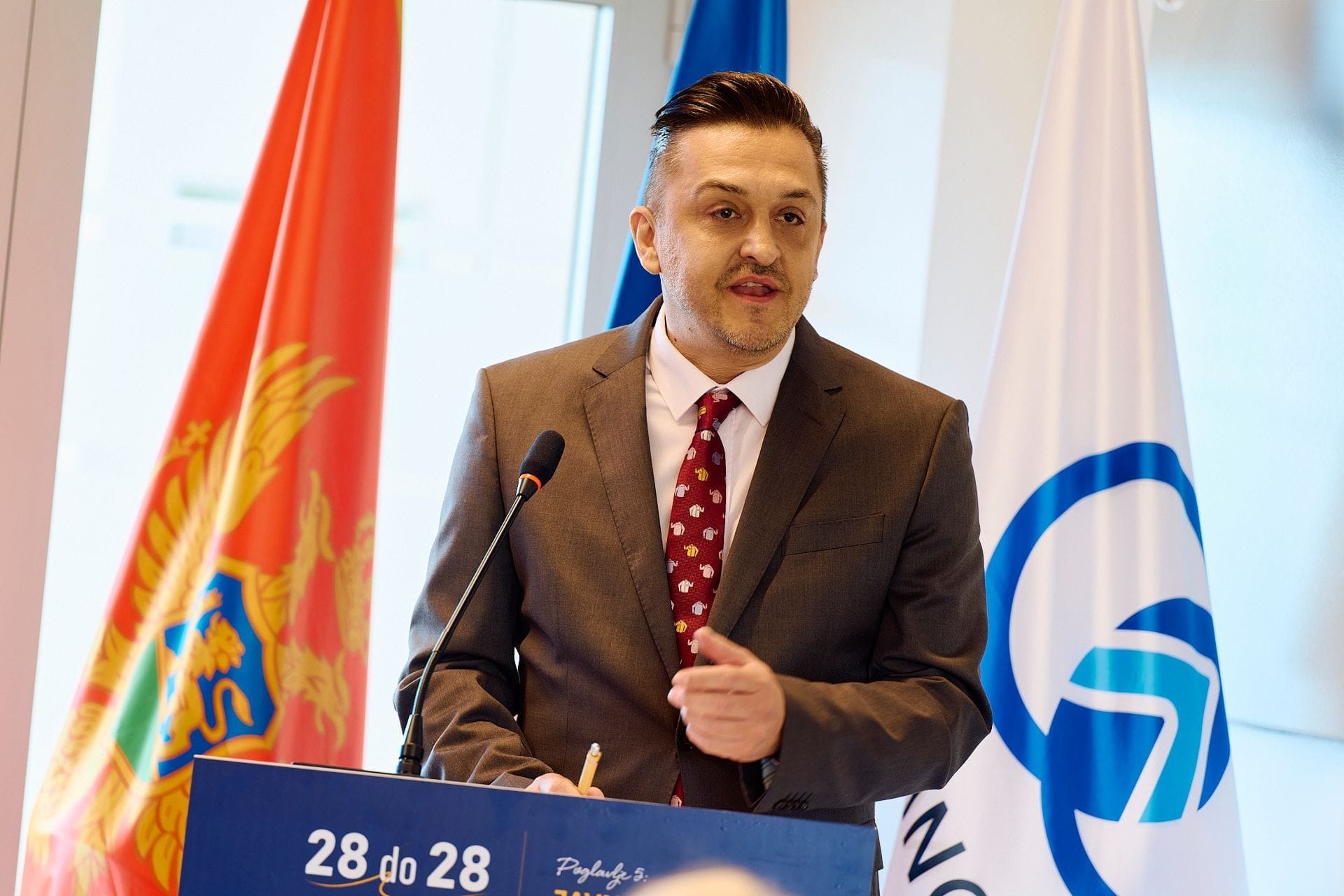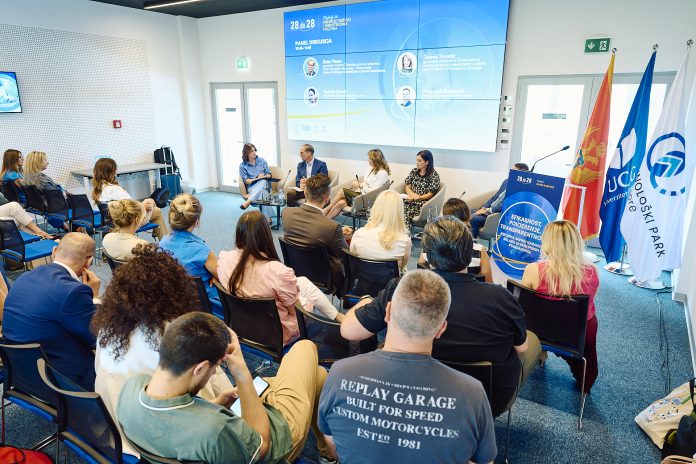The closing of Chapter 5 – Public Procurement represents a strong foundation for continuing reforms, with an emphasis on digitalization, professionalization, increased transparency, and an anti-corruption framework in line with best practices of EU member states. This was the message of the panel “EFFICIENCY. TRUST. TRANSPARENCY: Public Procurement Reform in Line with European Standards,” organized by the Ministry of European Affairs through the EU4ME project, in cooperation with the Ministry of Finance, as part of the “28to28” campaign aimed at bringing citizens closer to the benefits and significance of closing negotiation chapters.
Minister of European Affairs, Maida Gorčević, emphasized that the closing of this chapter shows Montenegro’s readiness to establish a system that protects the public interest.

“Public procurement must serve the citizens, not individuals. Every public expenditure must be justified, visible, and controlled. The provisional closure of this chapter does not mean the end of reforms. On the contrary – it is a solid foundation for their continuation. We are not just building a system – we are building trust. Transparent. Responsible. In everyone’s interest,” said Gorčević.
Minister of Finance, Novica Vuković, presented the comprehensive reforms that were implemented to close Chapter 5, from the adoption of the modern Law on Public Procurement and the development of the Central Electronic Public Procurement System (CEJN), to staff training and strengthening of inspection oversight.

“A particular emphasis in the coming period will be on strengthening the anti-corruption framework in public procurement, which Montenegro has committed to, defining the steps and deadlines for its implementation,” said Vuković.
During the panel discussions, experts from state institutions, business, and civil sectors spoke about challenges and future steps. Sašo Matas, Director General of the Public Procurement Directorate in the Government of the Republic of Slovenia, shared the country’s experiences and discussed challenges in market competition and ensuring competitiveness in public procurement procedures, as well as the importance of harmonizing regulations with European Commission Directives.

“In the EU, we spend 15% of GDP on public procurement, meaning that every sixth euro spent is through public procurement,” explained Matas.
Jelena Jovetić, Head of the Negotiating Working Group for Chapter 5 and Director General of the Directorate for Public Investment Management and Public Procurement Policy at the Ministry of Finance, reflected on key reform steps Montenegro has taken in the area of public procurement.

“We have dedicatedly created a new stable public procurement system, and with the same intensity, we are reinforcing the implementation of our reforms through the fight against abuse and corruption,” said Jovetić.
Nataša Cicmil, Secretary of the Commission for the Protection of Rights in Public Procurement Procedures, presented legal protection mechanisms for bidders and the challenges of ensuring fair procedures. Dragoljub Bulatović, Advisor to the President of the Chamber of Commerce of Montenegro, spoke about the importance of transparency and predictability for the business community in procurement processes.
“The system that has been established and is functioning clearly shows that it has met expectations. We have a record low number of complaints before the State Commission for the Protection of Rights in Public Procurement Procedures,” said Bulatović.
Representatives of the NGO sector emphasized the importance of preventing abuse and strengthening the anti-corruption framework. Dejan Milovac from MANS highlighted the importance of further strengthening institutions.
“The part outside institutions — when we talk about the Ministry of Finance and oversight institutions — is still not developed to the level where it can provide Montenegro with protection from non-transparent public procurement. That’s why we’re left with a bitter-sweet feeling about the European Commission giving a half-green light for the provisional closure of this chapter,” Milovac stated.

Dragana Jaćimović from the Institute Alternative emphasized the importance of oversight and the fight against corruption in public procurement.
“The Public Procurement Inspectorate hasn’t filed a single criminal complaint in years, and the number of complaints filed by the police in the past eight years can be counted on one hand — as well as those filed by the prosecution,” Jaćimović stressed.

Tanja Dragović from the State Audit Institution particularly praised the role of the electronic system in facilitating audit oversight and reducing errors in the implementation of procedures.
At the end of June, Montenegro closed Chapter 5 – Public Procurement at the Intergovernmental Conference in Brussels. This chapter is part of Cluster 1 – Fundamentals, which is the first to open and the last to close, further confirming its complexity and strategic importance for the overall negotiation process.


